- Home
- slideshows
- miscellaneous
- 12 US states and 7 countries that have barred protesters from wearing masks
12 US states and 7 countries that have barred protesters from wearing masks
In America, anti-mask laws have existed for more than 150 years. In New York, in 1845, a law was passed that made it illegal for a gathering of two or more people in public to wear a mask or cover their face to disguise their identity.

Laws banning masks were also passed in direct response to the Klu Klux Klan. In Alabama, it's been illegal since 1949 to wear a mask in public, except for celebrations like Mardi Gras or Halloween.
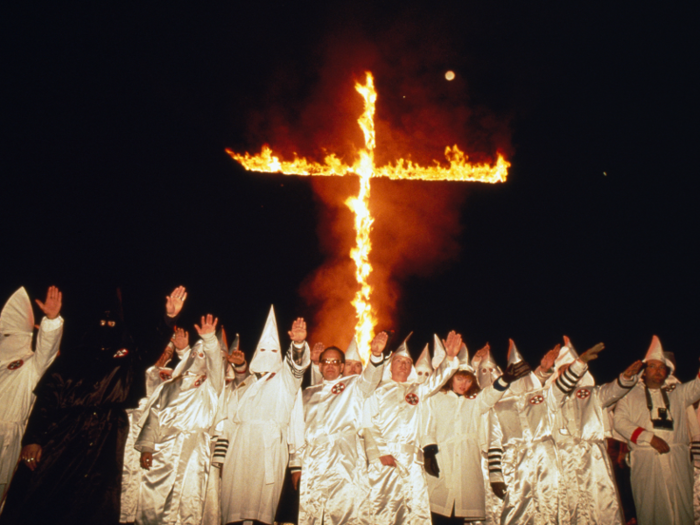
Source: The New York Times
Until 1979, California had sweeping anti-mask laws. That changed when Iranian-Americans sued the state after the Iranian revolution. They argued the law put them in danger because they couldn't hide their identities while protesting against the new Iran leaders. They won, and the law was struck down.
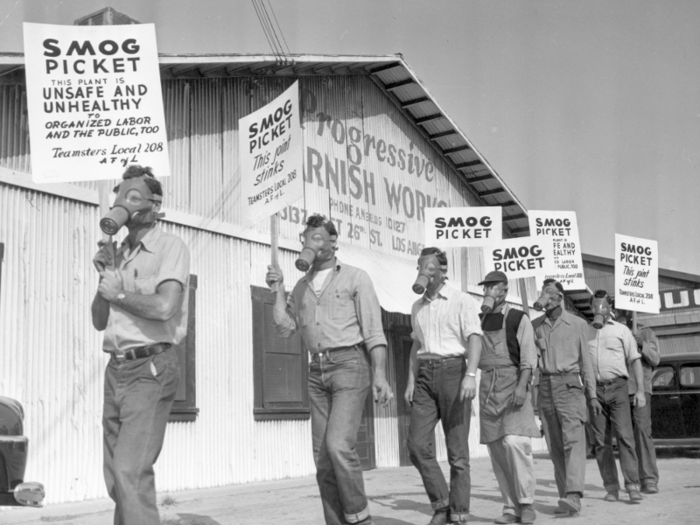
California still has a restriction though. After the case, it enacted a law that made it illegal to wear a mask while committing a crime.
In 2010, the District of Columbia banned protesters from wearing masks after 10 p.m. and without first notifying the police. It was enacted in response to protests by an animal rights group.
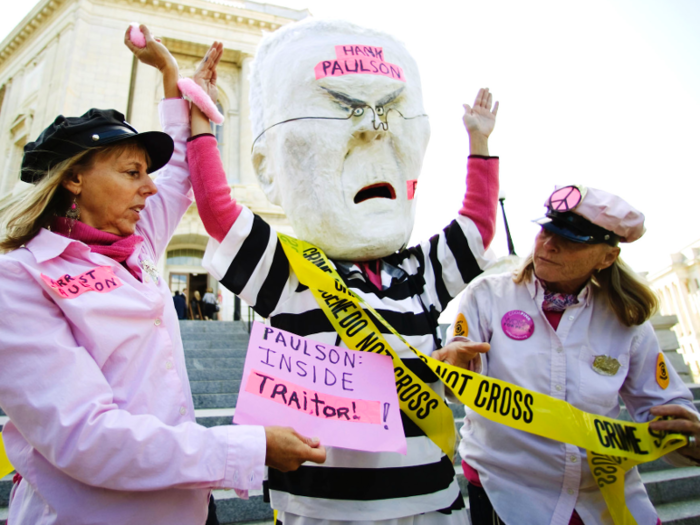
Sources: DCist
In Ohio, it's illegal for two or more people to wear "whitecaps, masks or other disguises," while committing some sort of offense.

Sources: The New York Times, Ohio
In Florida, it's been illegal to wear a mask or hood to hide a person's face since 1951. But, according to Howard Finkelstein, a local public defender, the anti-masking laws were meant to stop the Klu Klux Klan and robberies. It was never meant for protesters.
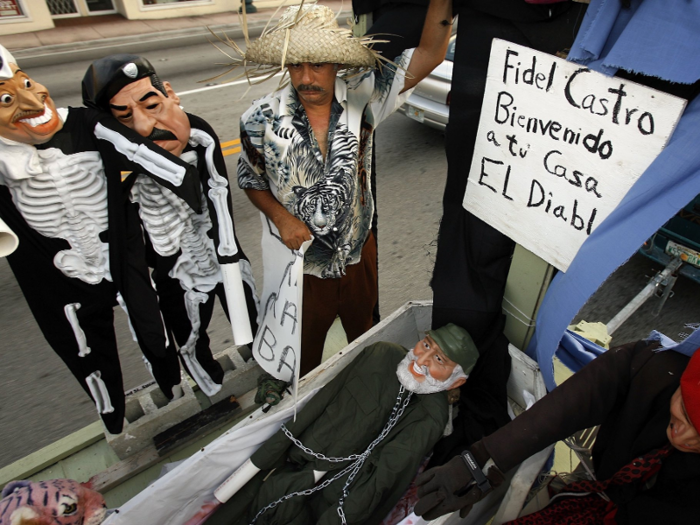
Source: Sun Sentinel
In Georgia, it's been illegal to wear a mask since 1951, except on occasions like Halloween, dressing up for a production, or going to sports games.
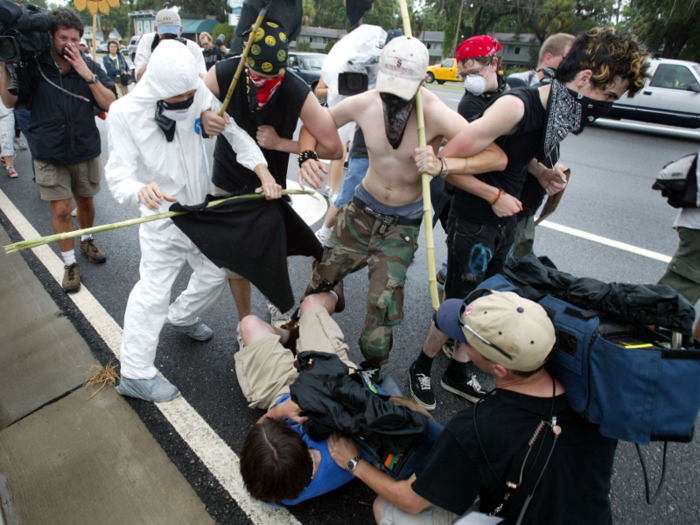
Source: Atlanta News Now
In Massachusetts, it's illegal for anyone to disguise themselves to obstruct the law or intimidate police or civilians. People can be fined up to $500 and imprisoned for up to a year.
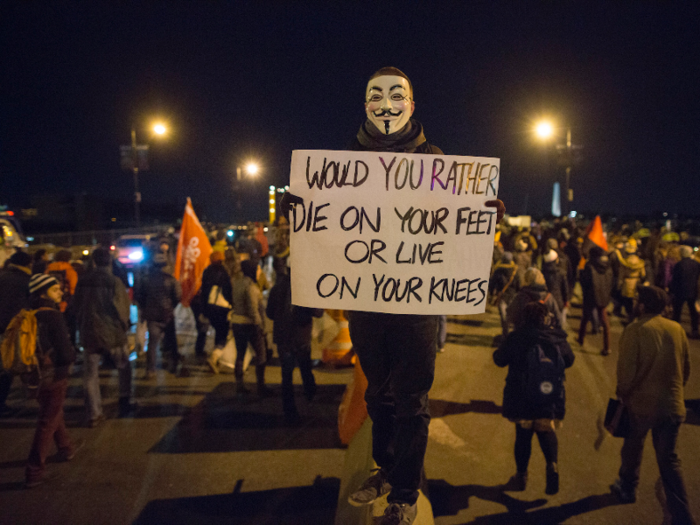
But there's no specific law that makes it a criminal offense for protesters to have covered their faces in the public yet. It could happen though. In September 2019, state Sen. Dean Tran said it was time to impose such a law.
In Michigan, wearing a mask, or otherwise concealing one's identity to commit a crime, can lead to being put in prison for up to 93 days or being fined $500.
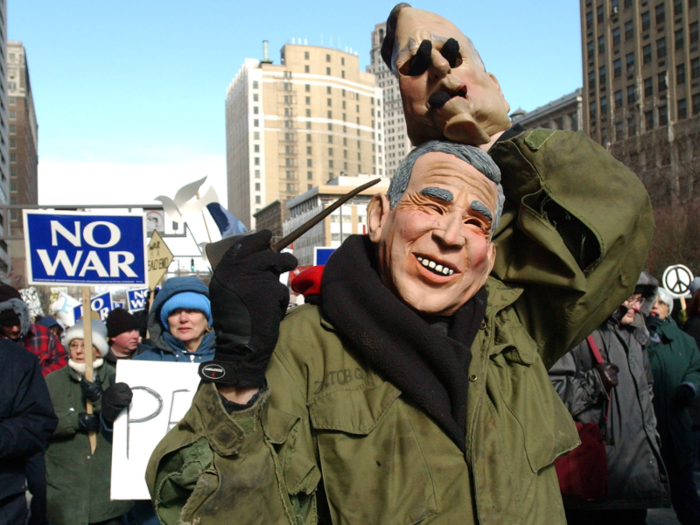
Source: Michigan Legislature
In North Carolina, it's illegal to wear a mask or hood that disguises someone, and intimidates or prevents others from going about with their days.
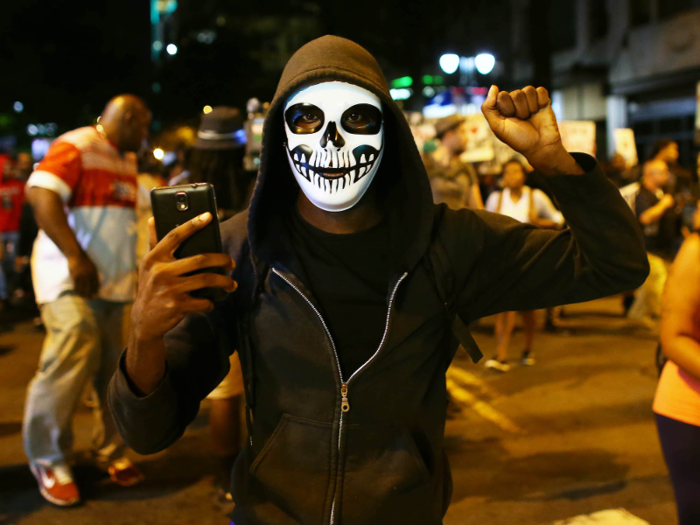
Source: North Carolina General Assembly
In North Dakota, in 2017, it was made illegal to wear a mask while committing a crime. The law was prompted by months of protests over the Dakota Access Pipeline.
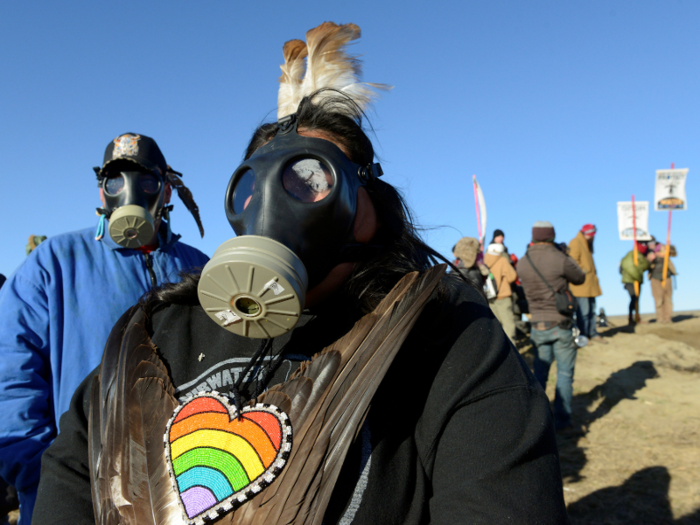
In Virginia, masks are banned when they're worn to hide the person's identity, unless it's for a traditional holiday, necessary for the person's job, or medically required.
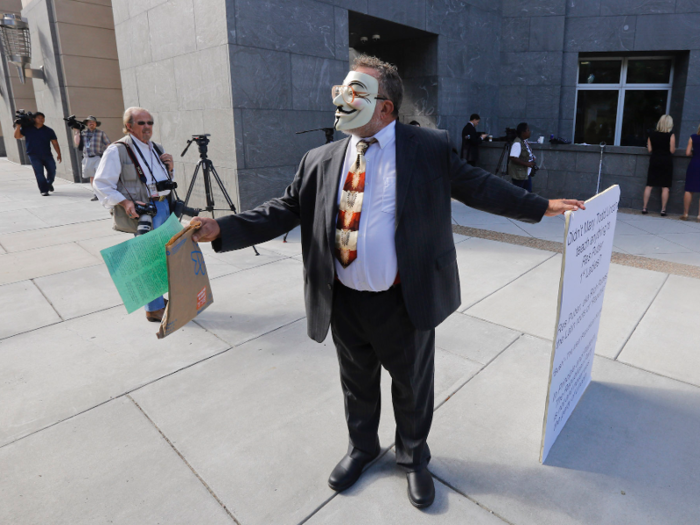
Source: Virginia Law
In West Virginia, masks are prohibited, except to dress up on holidays or for winter sports.
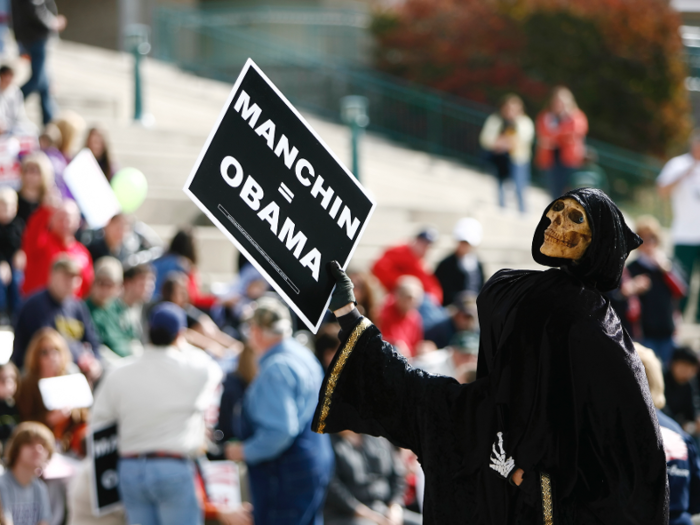
Source: The New York Times
Outside of the US, Germany passed a law barring people from covering their face during demonstrations in 1985. But police aren't too strict on enforcement, and protesters manage to get past these laws by wearing sunglasses, scarves, and hats. Austria has a similar law.
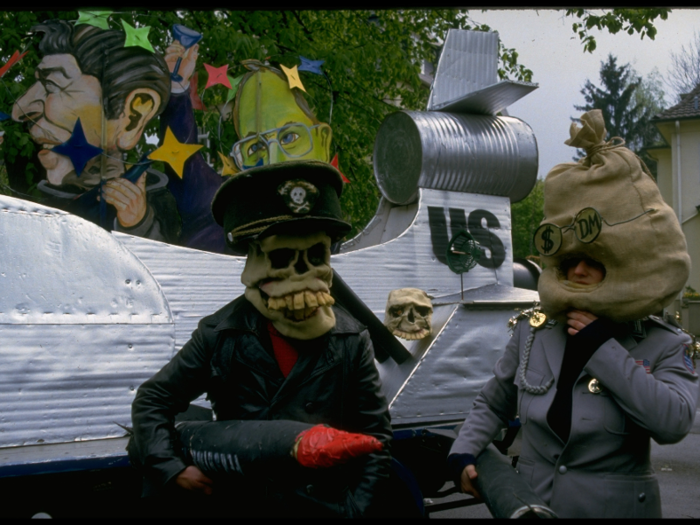
Sources: Washington Post, SCMP
In 2015, Spain passed a law that made wearing a mask a factor in choosing what offense the person had committed, and it could result in larger fines.
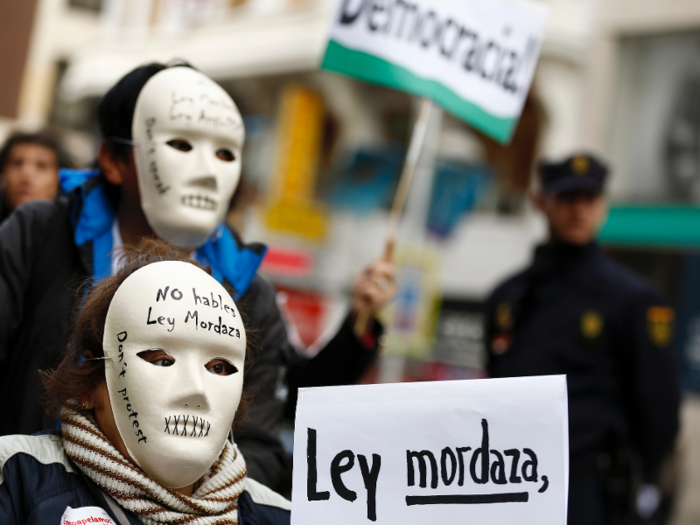
An earlier draft had included a complete ban on wearing masks during protests, which was known as the "gag law," but it didn't make it into the final law.
In 2013, Canada enacted a law that made it illegal for a protester to wear a mask or conceal their identity during a riot or unlawful gathering. If convicted, a masked protester could spend up to 10 years in prison.
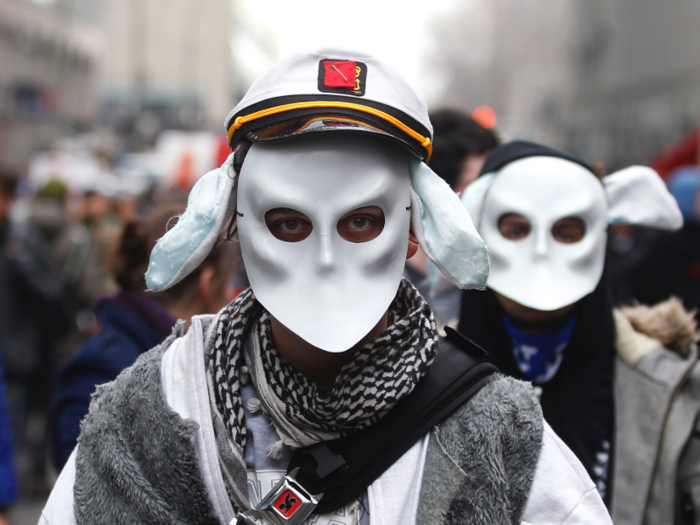
Source: CBC
In 2014, Ukraine quickly passed an anti-protest law, which included banning masks, but instead of weakening protests, as the government hoped, it led to a resurgence of violent riots.
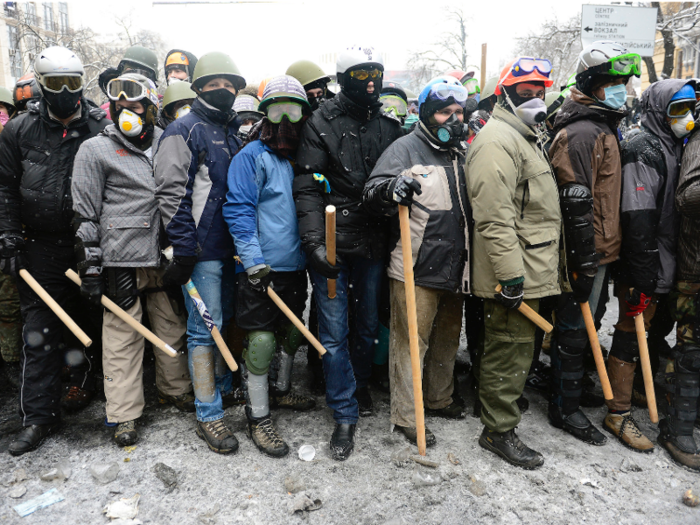
Source: Vice
Russia had also banned face masks at public gatherings, but in 2016 its Constitutional Court ruled that it was legal for people to cover their faces.
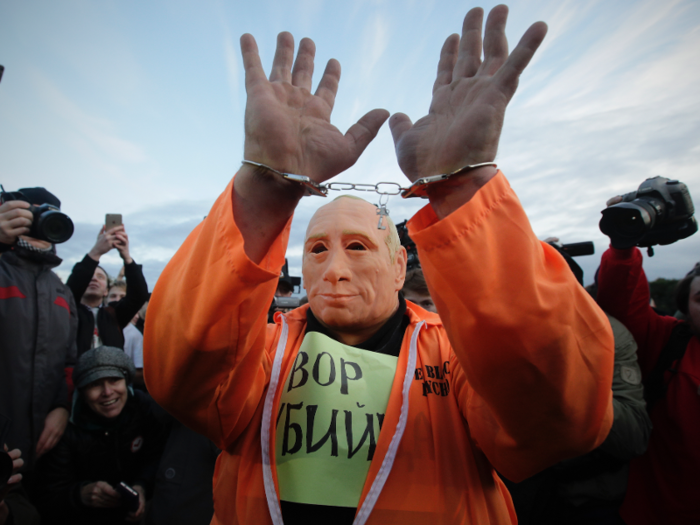
But police often pick up masked protesters despite the ruling, the Washington Post reported.
Australia doesn't have a nation-wide law banning masks, but in Melbourne demonstrators can be evicted from protests for wearing a mask.
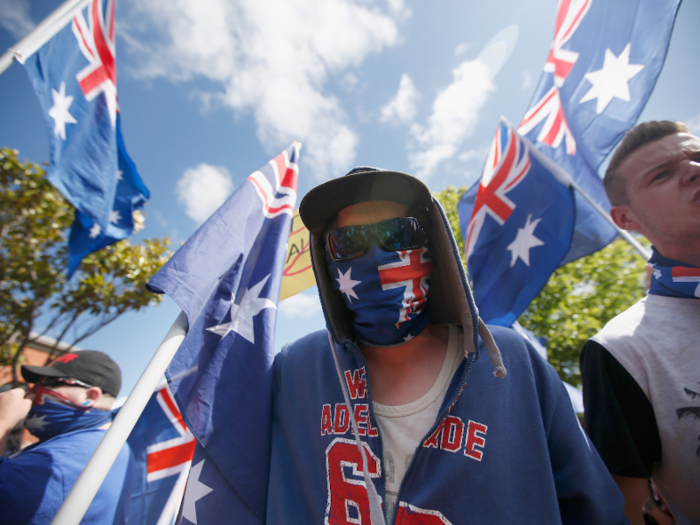
However, police can only act if they think the mask is to conceal the protester's identity, or to protect themselves from things like pepper spray.
In January 2019, France banned masks under what's known as the "anti-troublemakers" law. The ban came after months of violent "yellow vest" protests, which were triggered by French President Emmanuel Macron's economic policies.
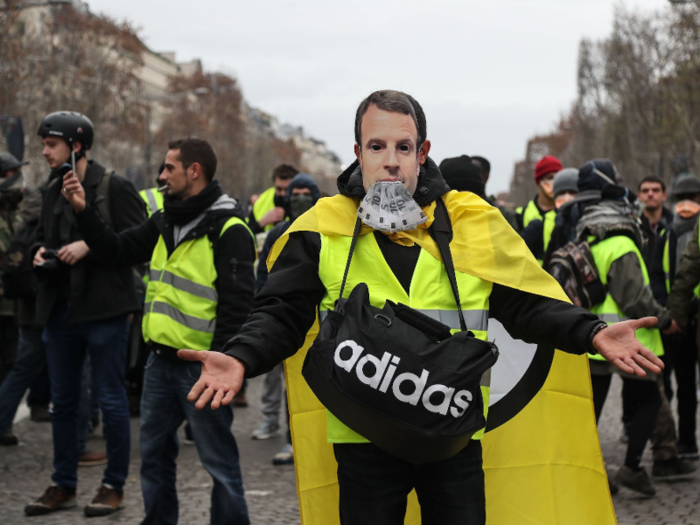
If caught, protesters could be imprisoned for up to one year and fined $17,000.
Burkas have also been banned across Europe. Denmark, the Netherlands, Italy, France, Belgium, and Catalonia have imposed some form of ban to stop women from wearing burkas in public.
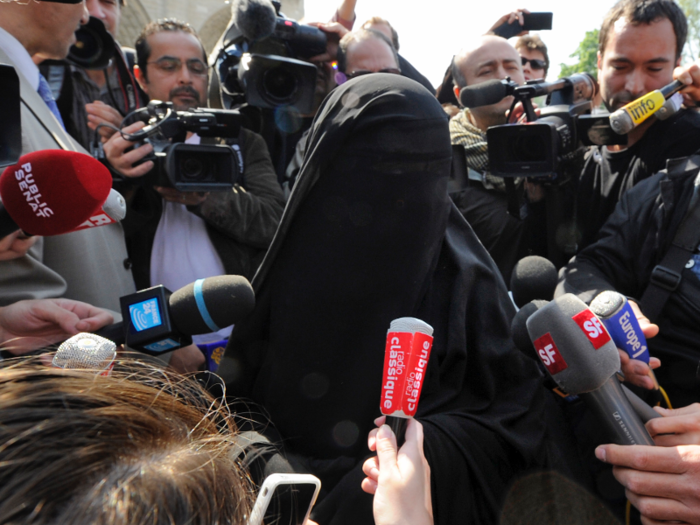
One of the reasons for the bans was to help lessen fears of a growing Islamic militant force. In Belgium, liberals argued that being unable to identify people who are wearing burkas was a security risk. They also called the burka "a walking prison" for women.
But Muslim rights groups have said these sorts of laws are discriminatory.
Catalonia's Immigration Minister told The Guardian in 2010: "At this rate we will end up with more bans than burqas."
In October 2019, Hong Kong enacted its ban on masks. But instead of stopping protesters from wearing masks, it led to more protests.
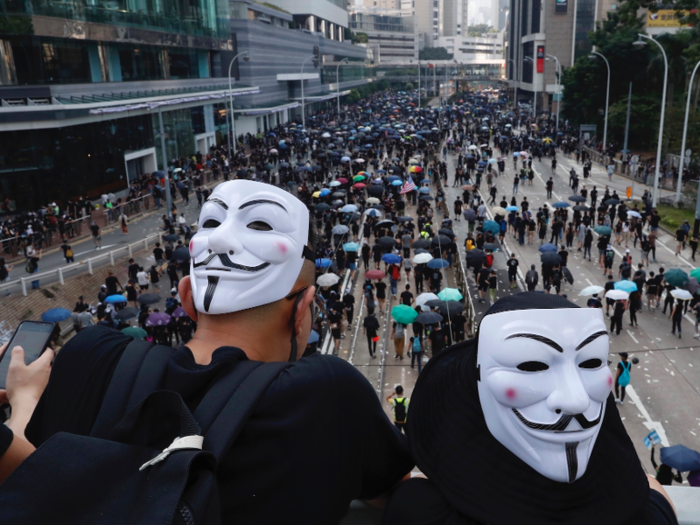
The day it was enacted, tens of thousands of masked protesters took to the streets, chanting things like, "I want to wear face masks," and, "Wearing masks is not a crime."
Willy Lam, an adjunct professor at the Chinese University, told CBS News it was a dangerous first step, and if it doesn't work it could lead to curfews and more infringements on the freedoms of individuals.
Popular Right Now
Popular Keywords
Advertisement